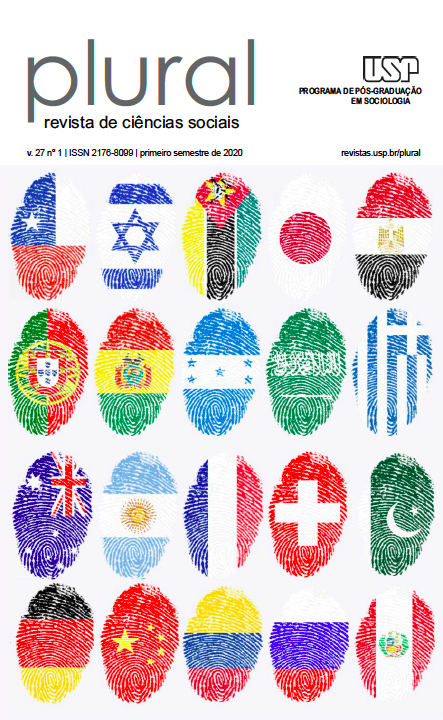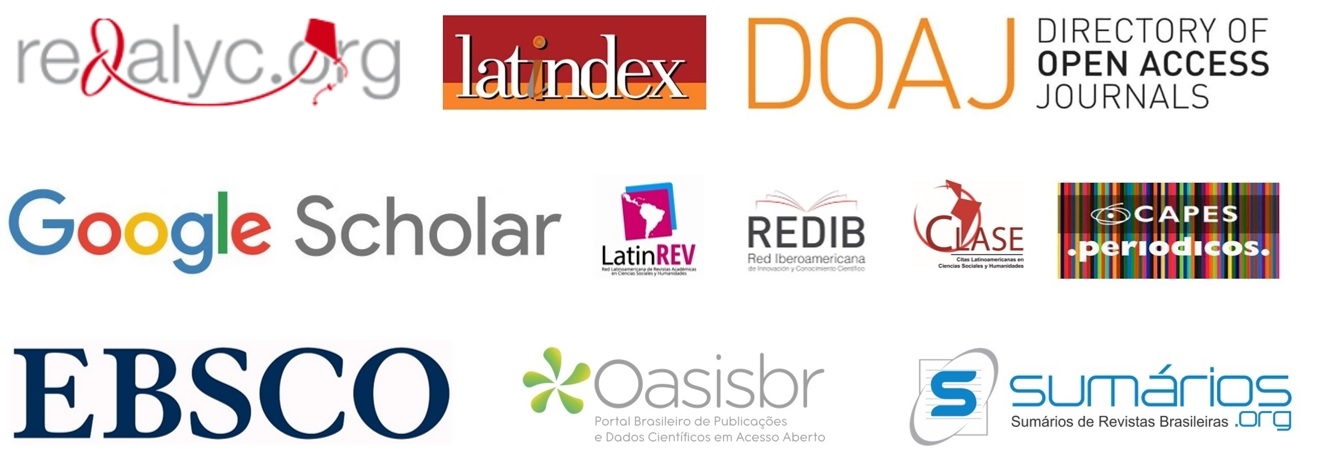The immigrants’ illegality as a social inclusion category and condition for their subordination
A case study on the migration of Bangladeshi to Portugal
DOI:
https://doi.org/10.11606/issn.2176-8099.pcso.2020.162815Keywords:
Immigrant, Illegality, Smuggling, Human rightsAbstract
Intense global flows have led to an increase in migrant populations in European countries and in Portugal in particular. The growing difficulty of citizens from countries like Bangladesh, India or Pakistan in legalizing themselves and the political processes of rejection of those migrants - The Brexit for example - led to the search for alternatives to these routes dating back to the colonial era and the forced labor of indigenous people. Meanwhile, centuries later , smuggling is a reality and it is in this context that Portugal in the post-crisis 2008 has become a legislatively friendlier country for immigrants, particularly through measures taken by the socialist government elected in 2015. Many of these immigrants, who - in some cases for decades - have not seen their relatives, could in 2018 fulfill that wish and some of them settled in Portugal, bringing their wives and having children already with Portuguese nationality. We will try to clarify how this process started in 2015 was developed and revealing, a social condition of individuals as unwanted pariahs and subjects of an illegal, and therefore exploitable body. The role of the state in overcoming this condition turns out essential.
Downloads
References
ABU – LOGHOD, L., Writting Culture. in. Richard G. Fox (ed.) Recapturing Anthropology: Working in the Present (1991), p. 466-479.
AGIER, M., Aux Bords du Monde, Lés Refugies. Paris: Flammarion, 2002.
ANDERSON, R., Illegality Inc. University of Calfornia Press: Oakland, 2014.
ANTHIAS, F. e GABRIELA, L., Gender and Migration in Southern Europe, Women on the Move. Berg: Oxford, 2000.
BEAUVOIR, S., O segundo sexo. II a experiência vivida. Difusão Européia do Livro: São Paulo, 1967.
BILLIG, M., Banal Nationalism. Sage Publications Ltd: London, 1995.
BOCAYUVA, P., “A fronteira como método e como “lugar” de lutas segundo Sandro Mezzadra.” in. Lugar Comum Nº39, p. 45-67.
BOURDIEU, P., Esboço de Uma Teoria da Prática, Precedido de Três Estudos de Etnologia Cabila. Celta Editora: Oeiras, 2002.
CALAVITA, K., Immigrants at the Margins; Law, Race, and Exclusion in Southern Europe. Cambridge University Press: Cambridge, 2005.
CARRERA, S., e GUILD, E., Irregular Migration, Trafficking and Smuggling of Human Beings Policy Dilemmas in the EU. Centre For European Policy Studies (Ceps): Brussels, 2016.
COLEMAN, J., Foundations of Social Theory. Harvard University Press: Cambridge, 1990.
DANCYGIER, R., “Immigration and Conflict in Europe, Review by: Sara Wallace Goodman.” In. The Journal of Politics, Vol. 74, No. 3, Published by The University of Chicago Press on behalf of the Southern Political science association: Chicago, (jully) 2012.
FOULCAULT, M., The History of Sexuality, Volume I, An Introduction. Random house: New York, 1978.
FOULCAULT, M., “A Vida dos Homens Infames.” in. Ditos & Escritos IV: Estratégia, PoderSaber, Forense Universitária: Rio de Janeiro, 2003.
GENOVA, N., Deportation Regime; Sovereignity, Space, and the Freedom of Movement., Duke University Press: Londres, 2010.
HALBWACHS, M., A Memória Coletiva. Vértice: S. Paulo, 1990.
HARVEY, D., The Condition of Post-modernity. Basil Blackwell: Oxford, 1989.
LECHNER, E. (Ed.)., Rostos, vozes e silêncios : uma pesquisa biográfica colaborativa com imigrantes em Portugal. Almedina: Coimbra, 2015. MAPRIL, J., Apresentação em Horizontes Antropológicos, Porto Alegre, ano 22, n. 46, pp. 473-477, jul./dez. 2016.
LUÍS JSA, F.,Travestis Brasileiras em Portugal; Percursos, Identidades e Ambiguidaedes. tese de Doutoramento, Universidade Nova de Lisboa:Lisboa, 2015.
LUÍS, F. e TROVÃO, S., “De Mana em Mana: Transnacionalismos.” In. Susana Trovão (org.), De Muitas e Variadas Partes ao Portugal do Século XXI. Dinâmicas de género, intergeracionais e familiares em contexto migratórios. Colibri: Lisboa, 2010.
MACHADO, I., A Invenção do Brasil Exótico entre Imigrantes Brasileiros no Porto, Portugal. Apresentação no GT Migrações Internacionais, XXIII Anpocs, Caxambu, Brasil 19 a 23 de Outubro, 1999.
MACHADO, I., Cárcere Público – Processos de Exotização entre Imigrantes Brasileiros no Porto em Portugal. Tese de Doutoramento em Antropologia, Universidade Estadual de Campinas: Campinas, 2003.
MAPRIL, J.,, “Bangla masdjid»: Islão e bengalidade entre os bangladeshianos em Lisboa.” in. Análise Social, vol. XXXIX (173), 2005, p.851-873
MAPRIL, J., “Banglapara: imigração, negócios e (in)formalidades em Lisboa.” in. Etnográfica, Junho 2010, nº14 (2), p. 243-263.
MAPRIL, J., e BLANES, R., Sites and Politics of Religious Diversity in Southern Europe The Best of All Gods. Brill: Laiden e Boston, 2013.
MEZZADRA, S., Direito de Fuga. Edições Unipop: Lisboa, 2012
MEZZADRA, S., e NEILSON, B., Border as Method, or, the Multiplication of Labor. Duke University Press, 2013.
MEZZADRA, S., in. REMHU - Rev. Interdiscip. Mobil. Hum. Brasília, Ano XXIII, n. 44, p. 11-30, jan./jun. 2015
SAYAD, A., Le Double Absence. Des ilusions de l´émigré aux souffrances de l´immigré. Éditions du Seuil: Paris, 1990.
SAYAD, A., L´immigration ou les paradoxes de l´altérité. Raisons d`agir Editions: Paris, 2014.
SEABROOK, J. e SIDDIQUI, I., India´s Muslim Guettos. People without history. Pluto Press: London and New York, 2011.
SHELLEY, L., Human Trafficking. Cambridge University Press: New York, 2010.
VERTOVEC, S., Transnationalism. Routledge: London e New York, 2009.
WESTIN, B., DAHINDEN e G., Processes and Dynamics in Multi Ethnic Europe. Amsterdam University Press: Amsterdam, 2010.
WOLF, E., Europe and The People Without history. University of California Press: London, 1985.
Downloads
Published
Issue
Section
License
Copyright (c) 2020 Política de direitos compartilhados

This work is licensed under a Creative Commons Attribution-NonCommercial-ShareAlike 4.0 International License.
Ao submeter seu trabalho à Plural, o autor concorda que: o envio de originais à revista implica autorização para publicação e divulgação, ficando acordado que não serão pagos direitos autorais de nenhuma espécie. Uma vez publicados os textos, a Plural se reserva todos os direitos autorais, inclusive os de tradução, permitindo sua posterior reprodução como transcrição e com devida citação de fonte. O conteúdo do periódico será disponibilizado com licença livre, Creative Commons - Atribuição NãoComercial- CompartilhaIgual –, o que quer dizer que os artigos podem ser adaptados, copiados e distribuídos, desde que o autor seja citado, que não se faça uso comercial da obra em questão e que sejam distribuídos sob a mesma licença (ver: http://www.creativecommons.org.br/).







